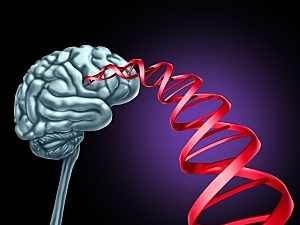In 2007, researchers from Mass General Brigham proposed in the Proceedings of the National Academy of Sciences that loss of presenilin function underlies memory impairment and neurodegeneration in familial Alzheimer’s disease (FAD). Presenilin is the catalytic subunit of γ-secretase, which cleaves the amyloid precursor protein and other transmembrane proteins.
The “presenilin hypothesis” was based on studies of mice in which presenilin genes were selectively inactivated in the adult cerebral cortex. The animals developed age-related, progressive neurodegeneration characterized by hallmarks of AD neuropathology, including synaptic loss, neuronal cell death, astrogliosis, and tau hyperphosphorylation.
Mutations in human presenilin genes (PSEN1 and PSEN2) are the major cause of early-onset familial Alzheimer’s disease. Building on the previous work, Paola Montenegro, PhD, formerly a research fellow in the Shen Laboratory for Molecular Neurobiology in the Department of Neurology at Brigham and Women’s Hospital, Jie Shen, PhD, principal of the Shen Lab and part of the Harvard Brain Science Initiative, and colleagues have published preclinical evidence that using gene therapy to deliver a functional copy of PSEN1 may someday be able to treat FAD. Their report appears in a new paper in the Proceedings of the National Academy of Sciences.
Methods
The researchers tested the use of adeno-associated virus 9 (AAV9) to deliver wild-type human presenilin-1 (hPS1) to four different sets of Psen-mutant mice. AAVs are often used as carriers of transgenes because of their neuronal tropism, stable transgene expression, and low immune responses. The AAV9 serotype is particularly attractive because it can achieve widespread gene expression in the central nervous system.
Key Results
The principal findings were:
- Despite low to moderate levels of hPS1 expressed from the AAV9 vector, hPS1 expression was sustained over time and rescued impaired γ-secretase activity in the cerebral cortex of mice that lacked presenilin.
- Impaired γ-secretase activity was also rescued in mice expressing the Psen1 L435F mutation, the alteration that most severely reduces γ-secretase activity; these mice are genetically analogous to patients with FAD who carry the same mutation.
- Introduction of hPS1 alleviated short- and long-term synaptic plasticity impairments and memory deficits exhibited by Psen-mutant mice.
- hPS1 expression ameliorated neurodegeneration in aged Psen-mutant mice, as shown by reversal of cortical neuronal loss and elevated microgliosis and astrogliosis.
The Path Forward
These results are exciting proof-of-concept preclinical data for the use of gene therapy for patients with FAD who carry PSEN mutations. However, many technical challenges to clinical translation remain. One example is the much larger cerebral cortex in humans; the gene delivery vehicle will need to be capable of broader transduction and distribution.
Fortunately, recently developed AAV9 capsids have shown robust delivery across the blood–brain barrier and widespread CNS transduction in nonhuman primates after noninvasive intravenous administration. They hold great promise for gene therapy targeting FAD and other neurologic diseases.
